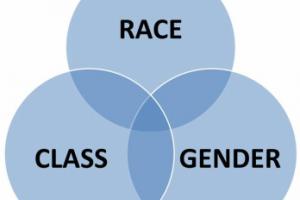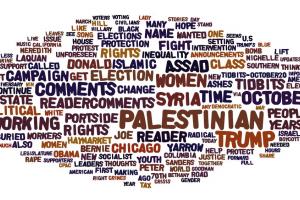Sympathy for the Devil?
Jacobin
 The numbers will be clear: downscale whites are a big pool of untapped votes. Yet if a cordon sanitaire is placed around that demographic territory and hung with the notorious label, “Trump Vote,” the Democrats will be even more likely to let the party system drift down its current path: into the culture-war politics of the reactionary Tammany-versus-Klan 1920s, rather than the class-based politics that followed.
The numbers will be clear: downscale whites are a big pool of untapped votes. Yet if a cordon sanitaire is placed around that demographic territory and hung with the notorious label, “Trump Vote,” the Democrats will be even more likely to let the party system drift down its current path: into the culture-war politics of the reactionary Tammany-versus-Klan 1920s, rather than the class-based politics that followed.










Spread the word